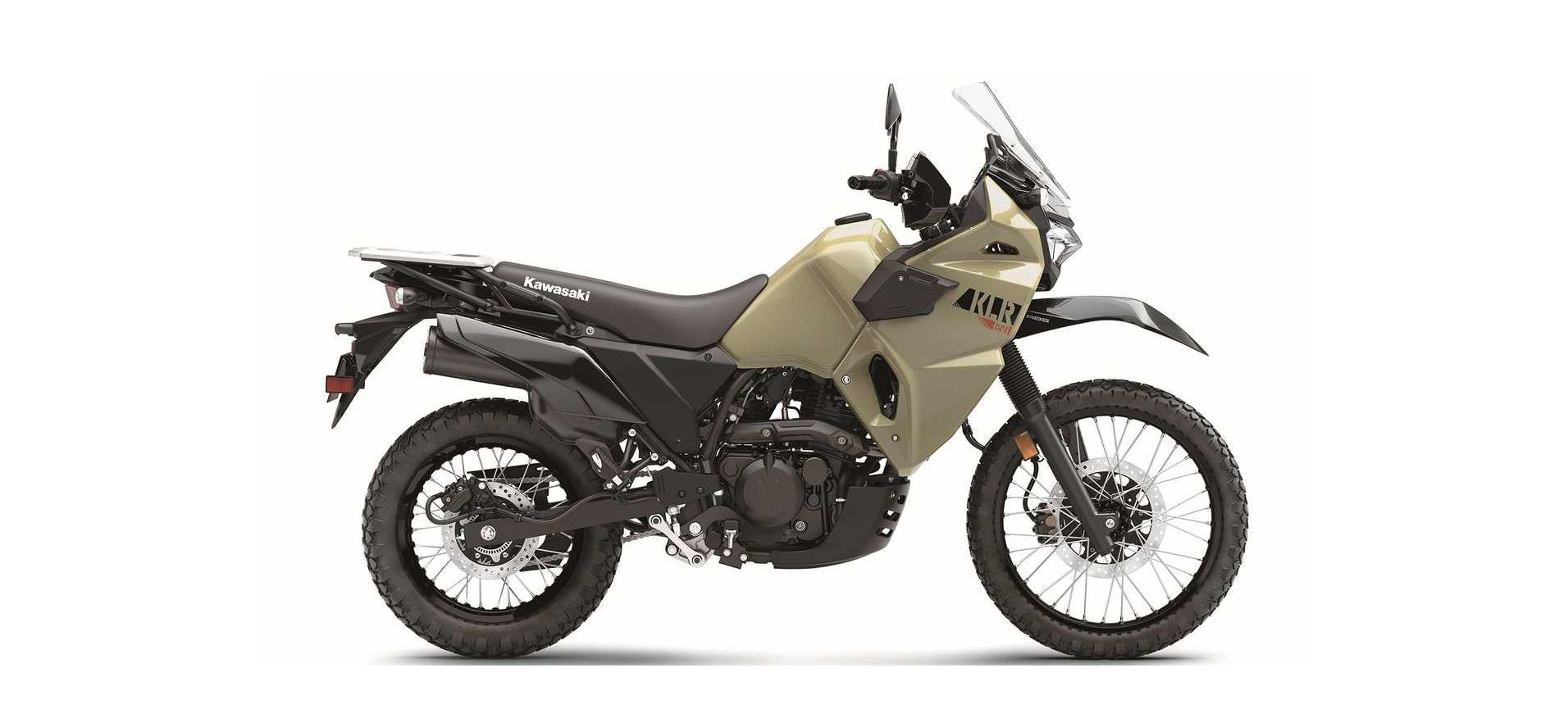2022 Kawasaki KLR650 ABS Battery Owners Manual




2022 Kawasaki KLR650 ABS Battery


Battery
The battery installed in this motorcycle is a sealed type, so it is not necessary to check the battery electrolyte level or add distilled water.
NOTICE
Never remove the sealing strip, or the battery can be damaged. Do not install a conventional battery in this motorcycle, or the electrical system cannot work properly.
Battery Maintenance
It is the owner’s responsibility to keep the battery fully charged. Failure to do so can lead to battery failure and leave you stranded. If you are riding your vehicle infrequently, inspect the battery voltage weekly using a voltmeter. If it drops below 12.6 volts, the battery should be charged using an appropriate charger (check with your Kawasaki dealer). If you will not be using the motorcycle for longer than two weeks, the battery should be charged using an appropriate charger. Do not use an automotive-type quick charger that may overcharge the battery and damage it.
NOTE
Leaving the battery connected causes the electrical components (clock etc.) to make the battery discharge, resulting in the over-discharge of the battery. In this case, the repair or replacement of the battery is not included in the warranty. If you do not drive for four weeks or more, disconnect the battery from the vehicle.
Kawasaki-recommended chargers are:
- Battery Mate 150-9
- OptiMate 4
- Yuasa MB-2040/2060
- Christie C10122S
If the above chargers are not available, use an equivalent one. For more details, ask your Kawasaki dealer.
Battery Charging
Charge the battery following the instructions of your battery charger. The charger will keep the battery fully charged until you are ready to reinstall the battery in the motorcycle (see Battery Installation).
DANGER
- Battery acid generates hydrogen gas which is flammable and explosive under certain conditions. It is present within a battery at all times, even in a discharged condition. Keep all flames and sparks (cigarettes) away from the battery.
- Wear eye protection when working with a battery. In the event of battery acid contact with skin, eyes, or clothing, wash the affected areas immediately with water for at least five minutes. Seek medical attention.
WARNING
Battery posts, terminals and related accessories contain lead and lead compounds, chemicals known to the State of California to cause cancer and reproductive harm. Wash hands after handling.
Battery Removal
- Make sure the ignition switch is turned off.
- Remove the bolts and washers.
- Remove the bolts and collars.
- A. Bolts and Washers
- B. Bolts and Collars
- Pull the left side cover outward to clear the projection.
- Pull the left side cover rearward to clear the tab.
NOTE
- Be careful that the side cover does not touch the saddlebag stay.
- Remove the left side cover.
- A. Projection
- B. Tab
- C. Left Side Cover
- Disconnect the negative(-) cable from the (-) terminal.
- Slide the red cap from the positive (+) terminal.
- Disconnect the positive (+) cable from the (+) terminal.
- Remove the band.
- A. Red Cap and (+) Terminal
- B. ( Terminal
- C. Band
- Take the battery out of the battery case.
- Clean the battery using a solution of baking soda and water. Be sure that the cable connections are clean.
Battery Installation
- Place the battery on the battery case.
- Connect the positive (+) cable to the (+) terminal, and then connect the negative (-) cable to the(-) terminal.
NOTICE
Installing the negative (-) cable to the (+) terminal of the battery or the positive (+) cable to the (-) terminal of the battery can seriously damage the electrical system. - Put a light coat of grease on the terminals to prevent corrosion.
- Cover the (+) terminal with the red cap.
- Install the band.
- Insert the tab into the slot.
- Insert the projection into the grommet.
- A. Tab
- B. Slot
- C. Projection
- D. Grommet
- Tighten the bolts with collars.
- Tighten the bolts with washers.
Recent Posts
VW Jetta Engine Fuse Box Diagram
Access the comprehensive 2010-2018 VW Jetta Passenger Fuse Box Diagram to troubleshoot electrical issues effectively.…
VW Jetta Passenger Fuse Box Diagram
Explore the comprehensive VW Jetta Passenger Fuse Box Diagram to troubleshoot electrical issues effectively. Understand…
2023 Ford F-150 Lightning Fuse Box Diagram
Under Hood Fuse Box Location Remove the front luggage compartment cover. Under Hood Fuse Box…
2022 Kawasaki NINJA H2 SX SE Brake Lever Adjuster Owner’s Manual
2022 Kawasaki NINJA H2 SX SE Brake Lever Adjuster Owner's Manual NOTICE Only adjust the front…
2023 Land Rover Range Rover Evoque Exiting The Vehicle Owners Manual
2023 Land Rover Range Rover Evoque Exiting The Vehicle SINGLE LOCKING WARNING Before exiting the…
2023 Land Rover Range Rover Evoque Front Seats Owners Manual
2023 Land Rover Range Rover Evoque Front Seats FRONT SEAT SAFETY Make sure to read…
